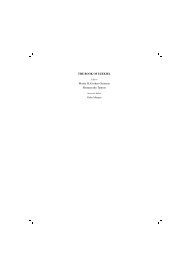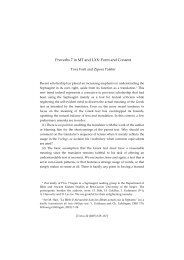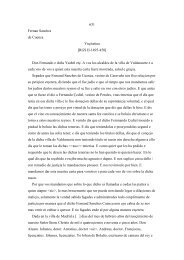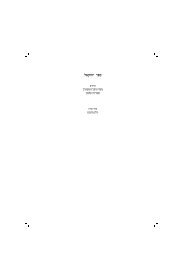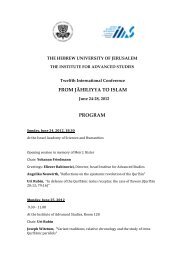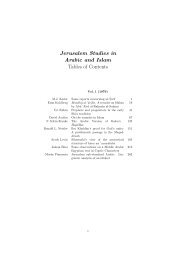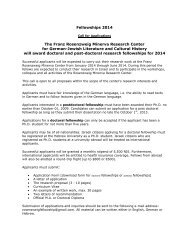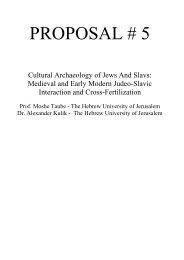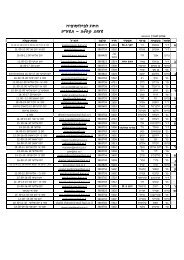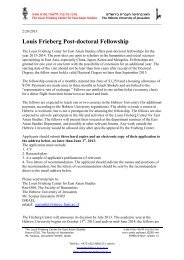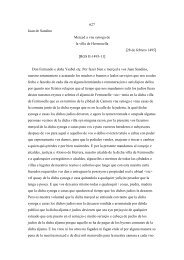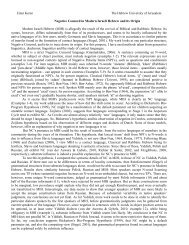Baber Johansen
Baber Johansen
Baber Johansen
You also want an ePaper? Increase the reach of your titles
YUMPU automatically turns print PDFs into web optimized ePapers that Google loves.
41<br />
IX.<br />
Conclusion<br />
The fiqh thus legitimizes contingent decisions on all levels of the law.<br />
The concept of contingent religious norms is already present in the<br />
QurÞānic reference to God’s abrogation of QurÞānic verses (2: 106). The<br />
jurists develop this reference into a theory according to which God<br />
revealed norms with temporary validity to his prophets. Therefore, the<br />
norms revealed to the prophets differed from each other. It is only at the<br />
death of the Prophet MuÎammad that God ended this practice of<br />
abrogation. Therefore, the norms contained in the QurÞān at the death of<br />
the Prophet MuÎammad will remain forever unchanged.<br />
Fiqh recognizes that changing customs and social conditions require new<br />
rules (ikhtilāf al-ahkām bi-khtilāf al-azmān). It thus refers explicitly to<br />
the temporary character of an important part of its norms. The contingent<br />
character of judicial decisions is discussed by all major jurists in great<br />
and sometimes luxurious detail. The contingent character of the decisions<br />
that form the object of the law, that is human acts, can be traced back to<br />
the central term through which the law defines the capacity to act: free<br />
choice (ikhtiyār). A free choice always presupposes that the act is not<br />
determined and could have been different. A strong element of human<br />
self-assertion is, therefore, part of fiqh, the Muslim system of ethical and<br />
legal norms. 97<br />
Fiqh’s insistence on the contingency of an important part of its norms<br />
and of human acts in general opens, on the one hand, a large field for the<br />
adaptation of legal norms to changing social conditions and could be a<br />
means to assure the flexibility of the legal system. On the other hand, the<br />
reference to contingency serves—in all pre-modern systems of thought—<br />
as a proof of the existence of an essential, substantial, eternal, true and<br />
living reality that guarantees the existence of contingent beings. In<br />
Islamic philosophy this reliance of contingent beings on non-contingent<br />
reality is best brought out in Fārābī’s Ideas of the Inhabitants of the<br />
Virtuous City, 98 which opposes the necessary first being to the possible<br />
beings of the sublunar world. Fiqh’s insistence on the contingency of<br />
norms and acts sets the same mechanism into action: the more the jurists



